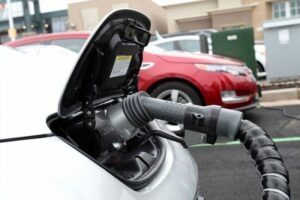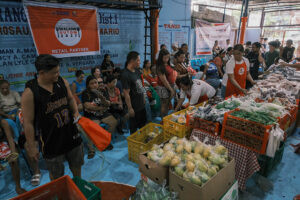THE ASIAN Development Bank (ADB) has greenlit a $400-million loan to expand the Philippine government’s food stamp program aimed at reducing involuntary hunger among low-income households.
In a statement on Wednesday, the multilateral lender said it approved the financing for the Reducing Food Insecurity and Undernutrition with Electronic Vouchers Project.
The $400-million loan will fund the government’s flagship social assistance initiative, Walang Gutom (Zero Hunger) Food Stamp Program.
Under the project, the Department of Social Welfare and Development (DWSD) will provide monthly electronic food vouchers to around 750,000 “food-insecure” households.
“With nearly half the Philippine population unable to afford a healthy and nutritious diet, food vouchers are essential to help poor and vulnerable households meet their nutritional needs,” ADB Deputy Director General for Southeast Asia and concurrent Country Director for the Philippines Pavit Ramachandran said in a statement.
The project is being co-financed by the Agence Française de Développement with a loan of 200 million euros ($220 million) and the OPEC Fund for International Development with a $150-million loan.
The DSWD said the Walang Gutom program currently covers 300,000 of the poorest Filipino families. It aims to cover 750,000 families by 2026.
Beneficiaries receive an Electronic Benefit Transfer (EBT) card with a food credits worth P3,000 per month. The card can be used to buy selected food commodities from accredited partner-stores.
However, beneficiaries have to attend monthly sessions to learn about “positive nutrition-related behaviors” and how to combat malnutrition and poverty.
“This project reflects ADB’s commitment to improving food security and nutrition so that all Filipinos can thrive,” Mr. Ramachandran said.
The ADB noted that poverty and food insecurity contribute to undernutrition, as nearly 30% of children in the country under the age of five are stunted.
“Childhood undernutrition is estimated to cost the economy $8.5 billion annually, underscoring the urgent need for targeted multisector solutions,” it said.
The Philippines’ vulnerability to disasters has also raised the risk of food insecurity and malnutrition. The country remained the most disaster-prone country for a 16th year, according to the World Risk Index. It experiences about 20 tropical cyclones each year.
The government has allocated P1.9 billion for the program, which will provide 50,000 qualified households with EBTs, under next year’s proposed national budget.
The ADB had provided technical assistance to the DSWD to pilot the delivery of electronic vouchers in five locations from December 2023 to July 2024 in partnership with the World Food Programme. — Aubrey Rose A. Inosante


















